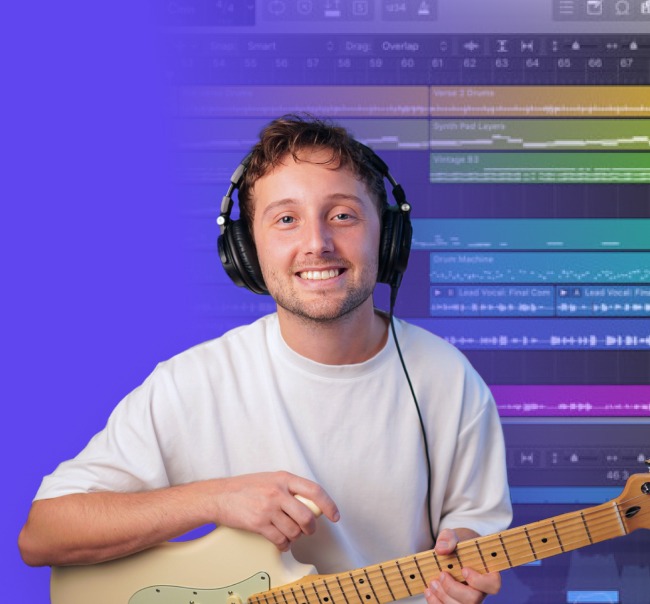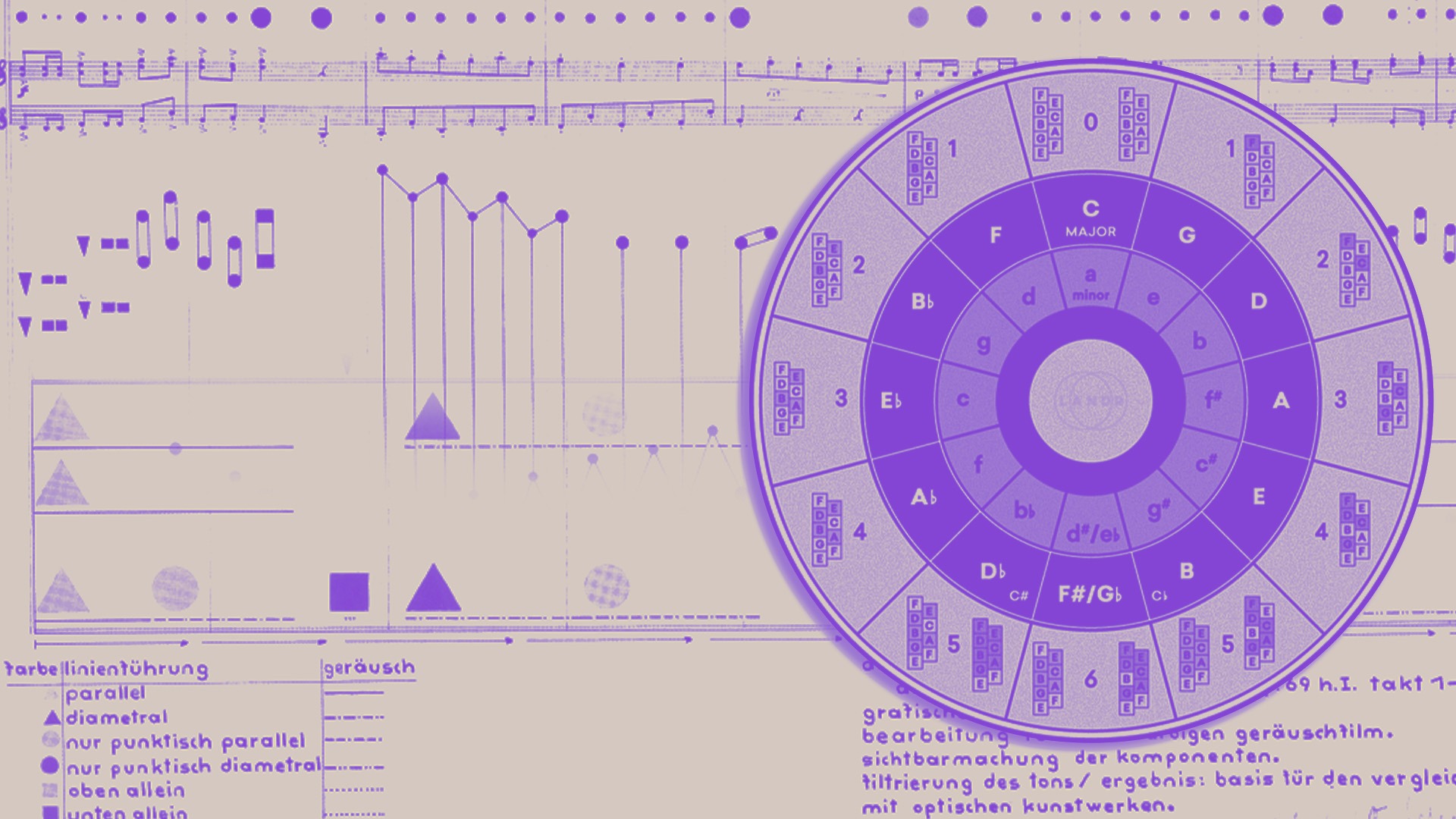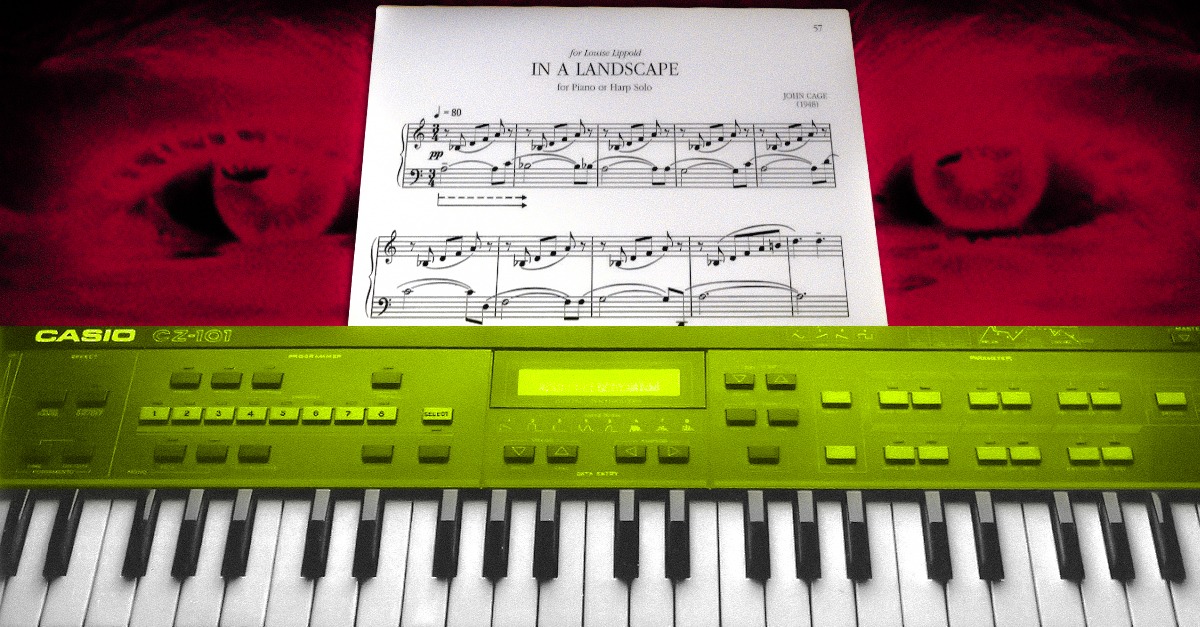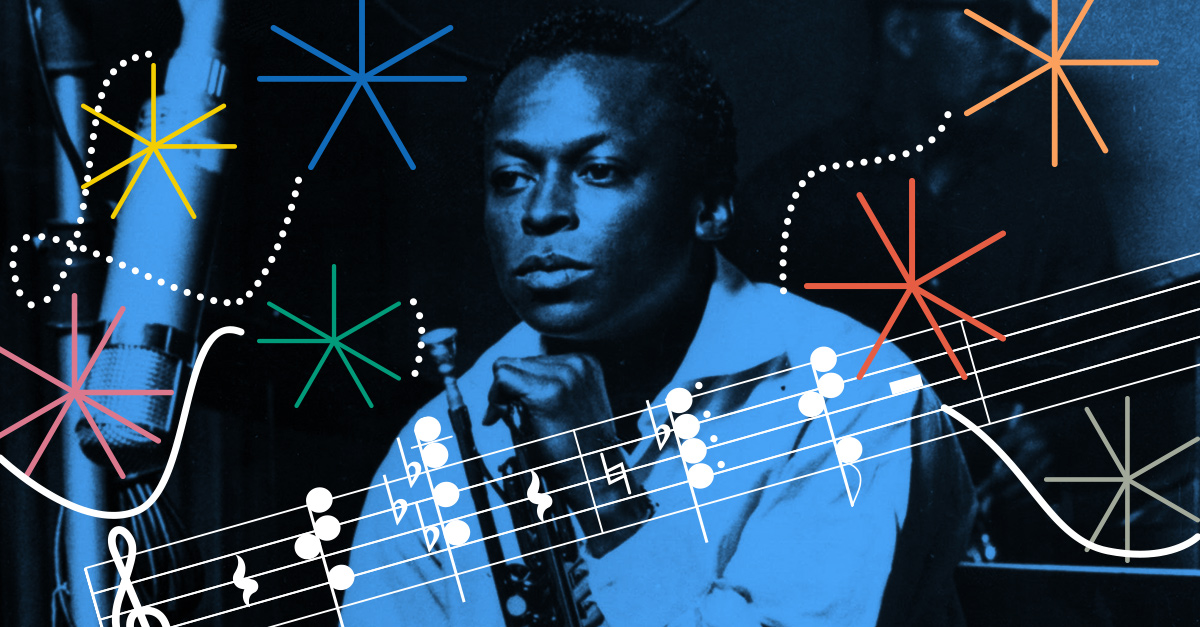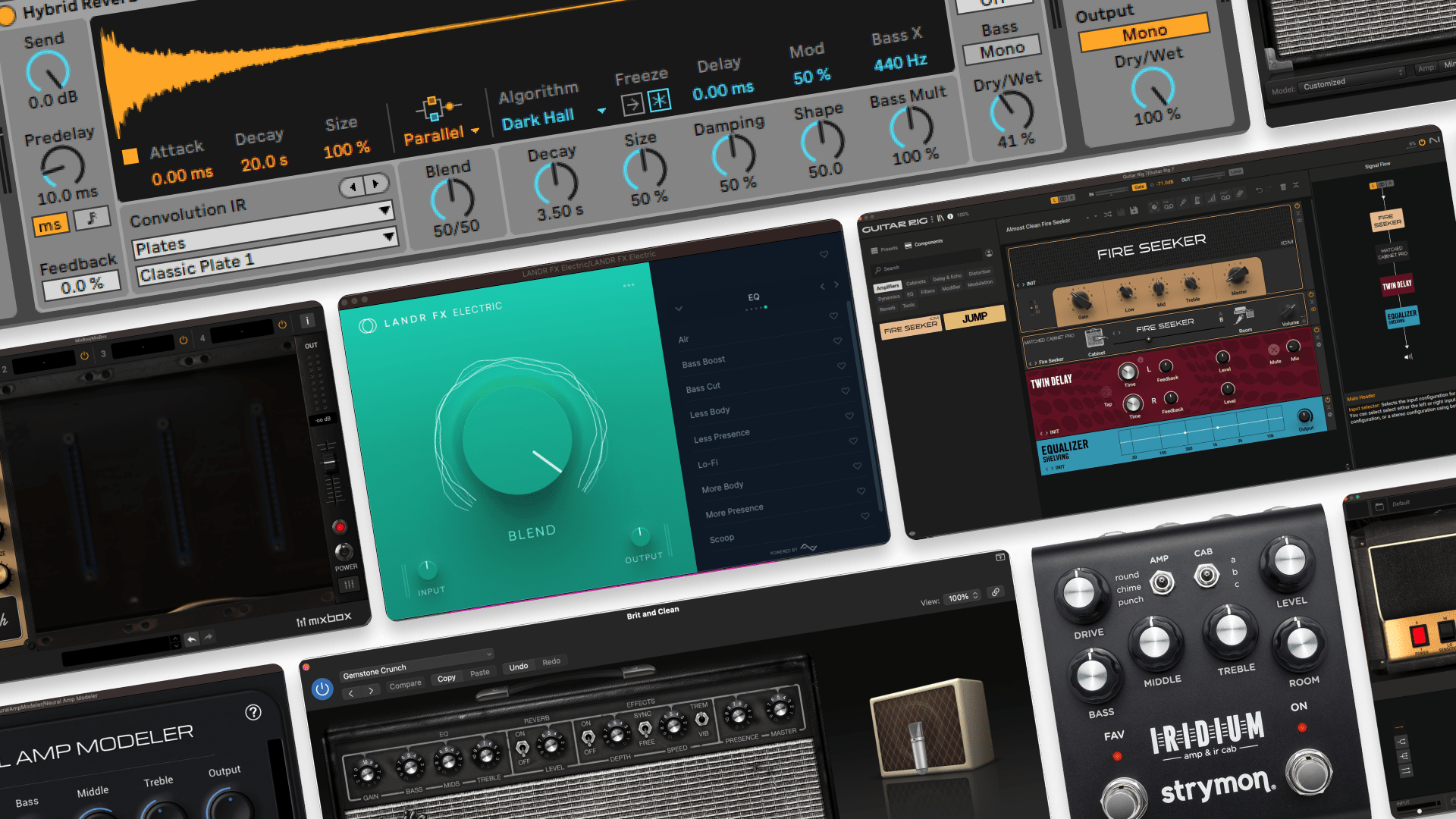
The 7 Best Music Theory Courses to Kickstart Learning Music
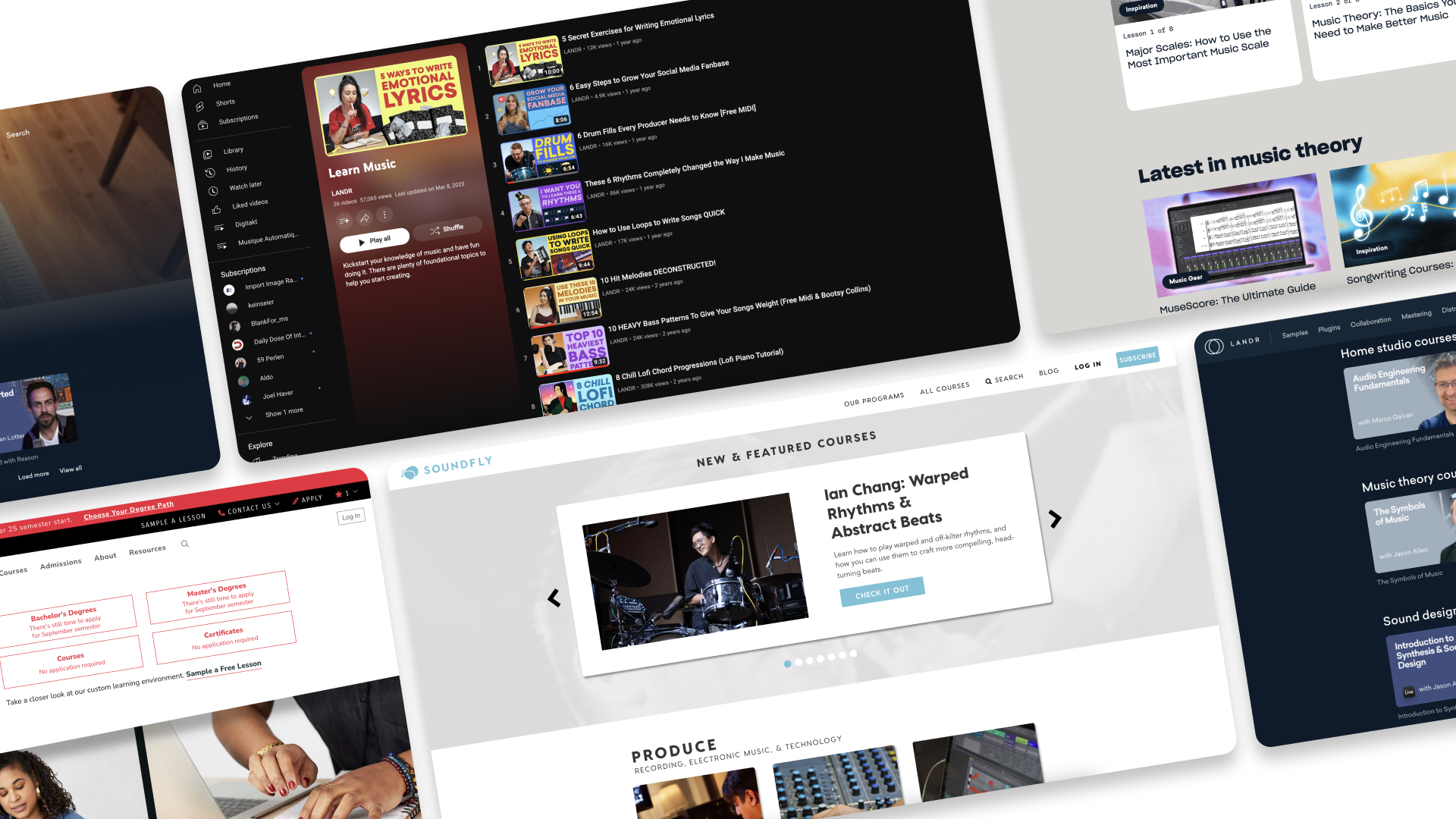
Music is a creative expression, but it’s also rooted in a technical and specific language. So, if you struggle with the language of music, you might need to enroll in music theory courses.
Learning music theory can broaden your music-making skills, especially if you’re starting to feel like you’re in a creative rut always using the same chords, scales, melodies or rhythms.
But what’s the best option for online music theory courses and what can you expect to get out of them?
In this article, we’ll break down what music theory courses can do for you and we’ll explore a handful of the best option.
Let’s dive in.
What are Music Theory Courses?
Music theory courses are usually composed of chapter-based guides that ultimately serve as your personal path to understanding the language of music.
No more guessing why certain chords work together or why a particular melody sticks in your head. These courses delve into the nitty-gritty of notes, rhythms, chords, and so much more.
They can be found online or in physical classrooms, and they range from beginner-friendly introductions to advanced explorations of complex concepts.
In short, they’re your key to unlocking the secrets of music.
Why Learn Music Theory?
Why bother learning music theory when you can just play by ear?
Because learning music theory is akin to learning how to read and write in music.
It enhances your ability to compose, allows you to communicate more effectively with other musicians, and opens up entirely new avenues of creativity.
If you feel stuck, as though you keep gravitating to the same chords, rhythms or melodies, music theory can get you out of a creative rut and challenge you to explore.
Understanding music theory also helps you appreciate music on a deeper level, revealing the structure and patterns behind your favorite songs.
It’s like having a musical roadmap, and once you know the way, the possibilities are endless.
How to Learn Music Theory
Learning music theory may sound daunting, but it doesn’t have to be.
Start with the basics, such as learning the names of the notes, understanding scales, and getting to grips with basic chords, intervals and triads.
Practice is essential, so make sure to apply what you learn regularly—whether thats on guitar, piano or even in a DAW’s piano roll.
Joining an online community of learners can provide valuable feedback and support, so you may want to look for music theory courses that feature built-in community via an online platform, video calls or in-person mentorship.
Remember, music theory is there to help you become more creative, so play around with different musical ideas, have fun, and don’t be afraid to make mistakes.
The 7 Best Music Theory Courses
With that out of the way, here are our picks for the seven best online music theory courses available right now.
1. LANDR Premium Courses

LANDR Premium Courses are designed to meet you wherever you are on your musical journey.
With expert instructors and a broad range of topics, these courses offer everything you need to develop a comprehensive understanding of music theory.
You’ll find everything from the most basic starting point, to harmony, advanced chords, applied songwriting and more.
Whether you’re just starting or want to deepen your knowledge, LANDR’s friendly and professional guidance will have you composing like a pro.
2. YouTube
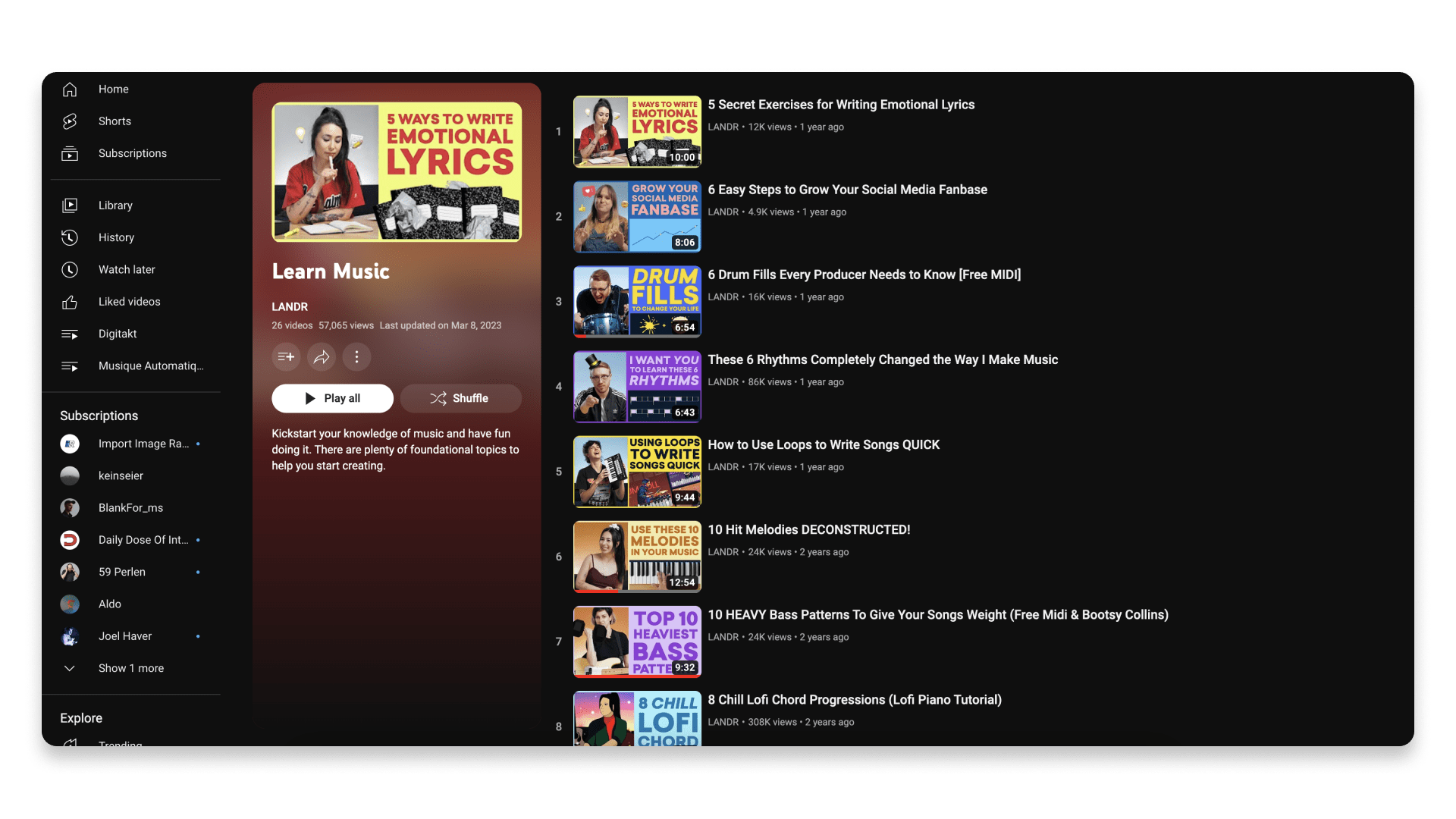
YouTube is a goldmine of free tutorials and lessons on music theory.
From beginner lessons to advanced techniques, there’s something for everyone.
You can find tutorials from professional musicians, educators, and even fellow learners. The key is to find reliable sources and stick to a structured learning path.
The LANDR YouTube is a good place to start if you’re looking for a handful of fun and friendly tutorials about music theory basics.
Other YouTubers of note include Adam Neely, Andrew Huang, 8-Bit Music Theory and Chris Cornell.

Peggy takes us through 10 powerful chord progressions.
3. The LANDR Blog
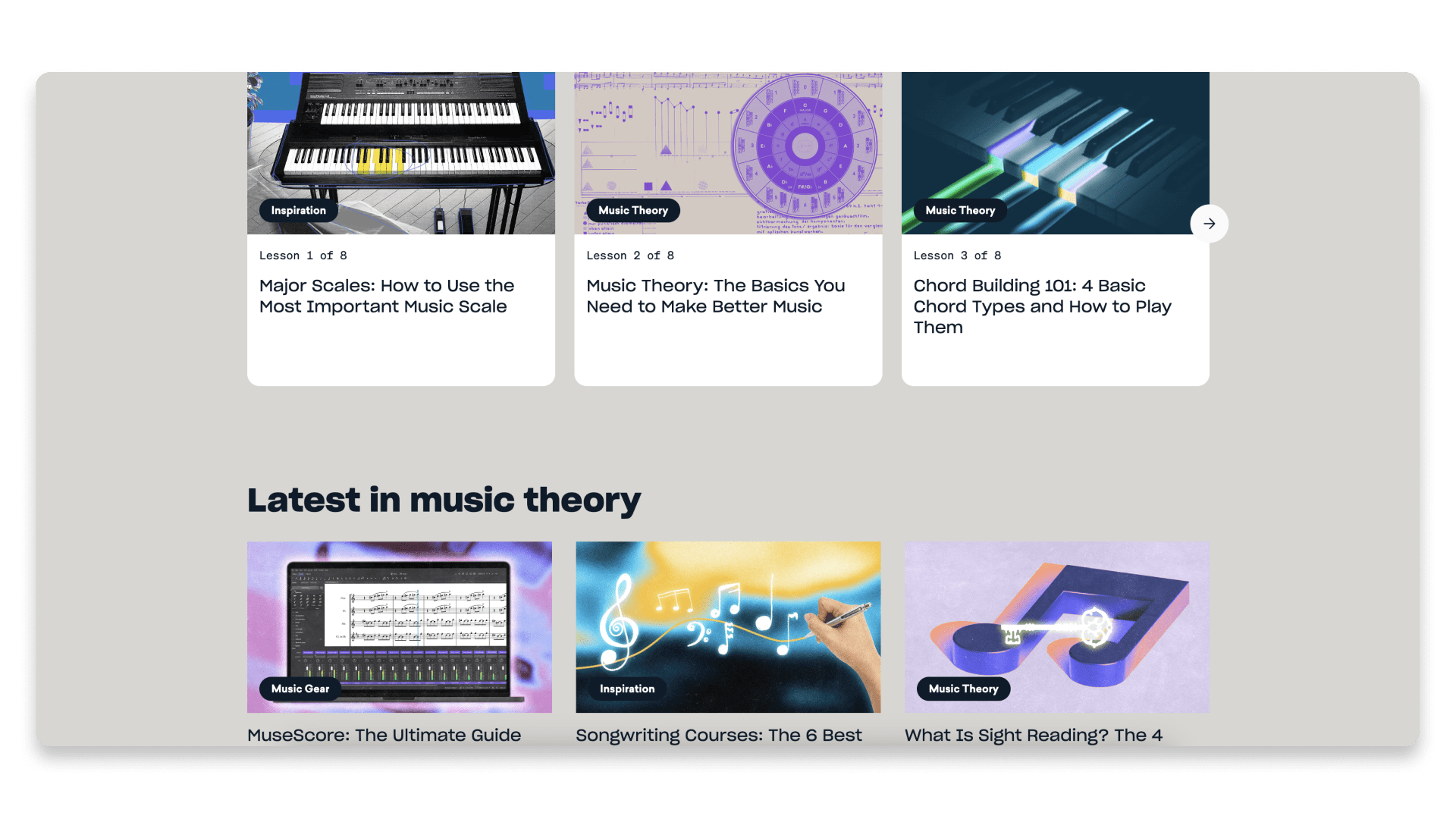
Yes, that’s us! The LANDR Blog is packed with approachable insights into many aspects of music theory.
From guides and how-to articles to inspiration and tips, you’ll find a wealth of information tailored to your needs.
We’re constantly writing content to both empower and inspire you, no matter where you are in your musical journey.
Our best music theory guides
To learn the building blocks of music, start here.

4. Berklee Online

Berklee’s online courses are a step into the professional world of music education.
While the opportunity to attend class at the revered halls of this top-tier academic institution isn’t a reality for everyone, taking its online courses is a completely viable substitution.
With a variety of courses to choose from, seasoned Berklee professors and educators guide you through the intricacies of music theory with worksheets, guides, quizzes and more.
If you’re serious about mastering your craft, this is the place to be.
5. SoundFly
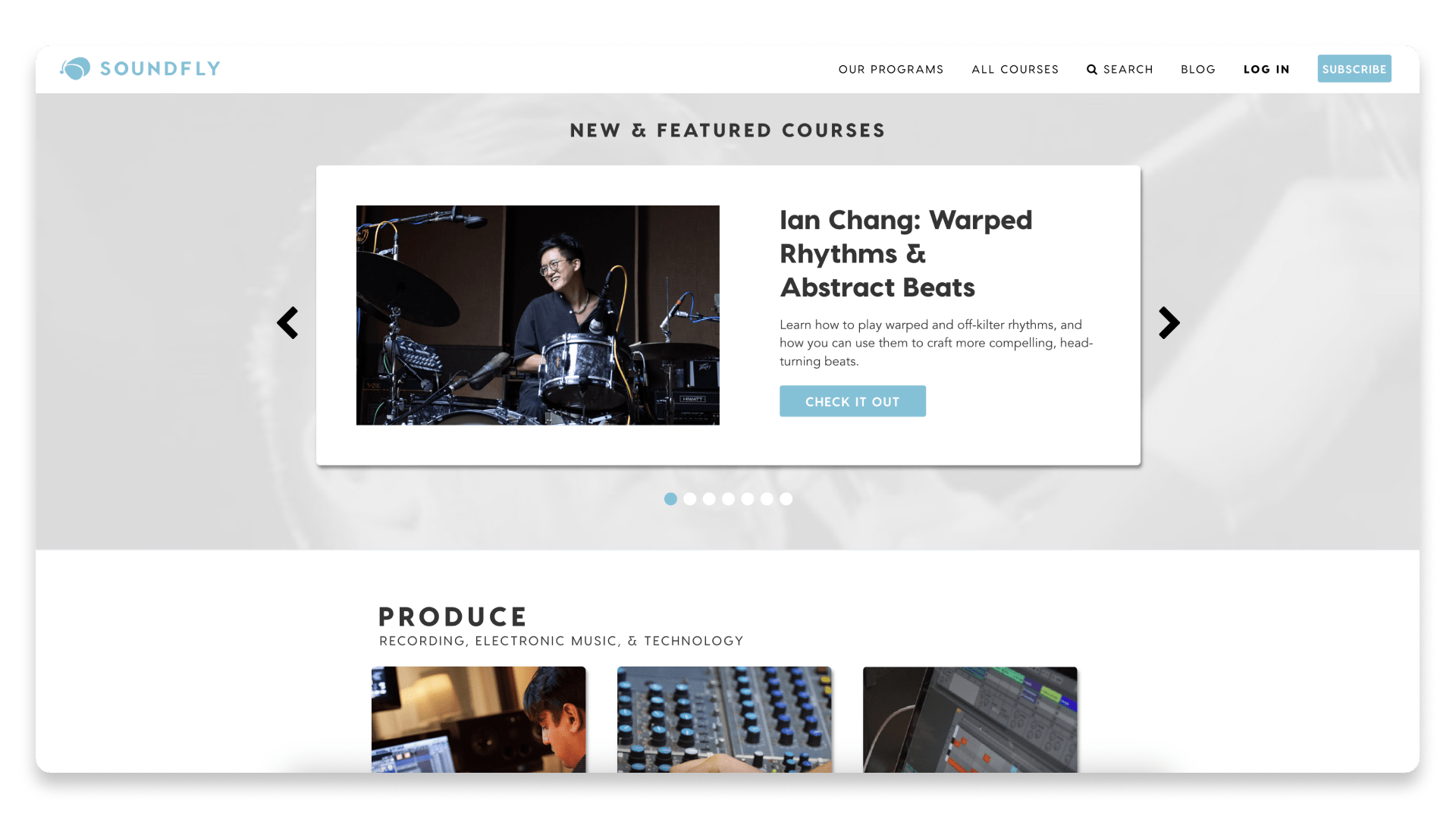
SoundFly offers a fresh and engaging approach to music theory.
With interactive lessons and creative challenges, it turns learning into playing.
Its features a collection of well known instructors from around the music industry including Andrew Huang, Kiefer and others.
If you’re looking for a hands-on experience from expert musicians and songwriters that encourage experimentation, SoundFly could be your perfect match.
6. Coursera
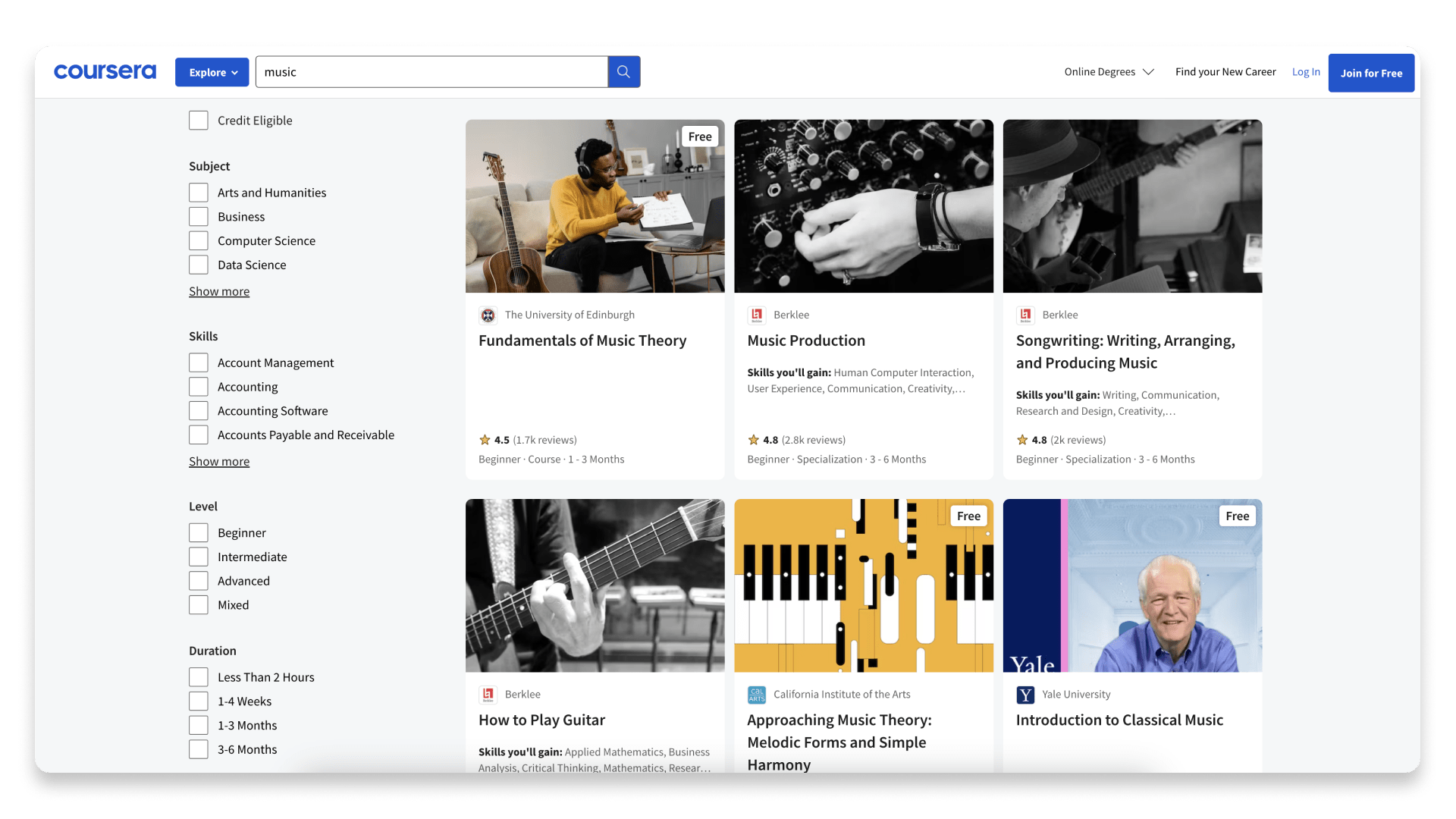
Coursera partners with universities and institutions to offer a wide array of music theory courses.
From beginner-friendly options to courses that delve into specific genres and advanced topics, there’s something for everyone.
It’s a great way to combine fun with academic rigor.
7. Hire an Online Mentor
Sometimes, the personal touch makes all the difference.
Hiring an online mentor means you’ll have a guide who understands your unique needs and goals.
It’s like having a musical friend who’s there whenever you need guidance, encouragement, or a fresh perspective.
The one-on-one attention can be invaluable in your journey to mastering music theory.
🧠 Hot tip
Enroll it up
The world of music theory is vast and rich, and these seven options are your gateway to exploring it.
Whether you’re looking for a casual introduction or a deep dive, there’s a course out there for you.
So why wait? Dive in and let the music take you where you want to go!
Gear guides, tips, tutorials, inspiration and more—delivered weekly.
Keep up with the LANDR Blog.
